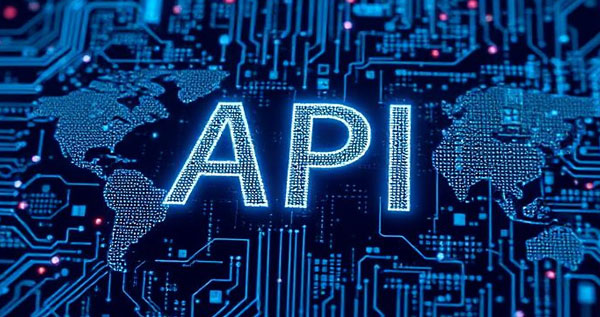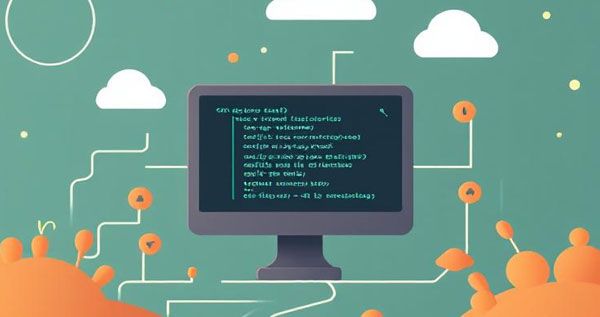Data Scraping and Privacy Compliance: Challenges and Solutions in Modern Data Collection
In the digital age, data has become a critical resource for business decision-making, product development, and market competition. From web scraping to API data acquisition, various data collection technologies are constantly evolving. However, the accompanying privacy risks, legal constraints, and ethical considerations have become increasingly prominent. This article explores the challenges faced by modern data collection, analyzes the technologies and management practices required for privacy compliance, and provides real-world examples of how to efficiently and securely gather data while ensuring privacy protection and legal compliance.
1. Current State and Development of Data Scraping
With the surge in internet data, web scraping technology has become widely adopted. Traditional data scraping methods typically rely on simulating browser requests, parsing HTML documents, and extracting necessary information. This approach allows for rapid acquisition of large amounts of data in contexts where information is publicly available and online content is rich, making it useful in market research, competitive analysis, and content aggregation.
However, with the rise of advanced anti-scraping measures, relying solely on traditional scraping techniques has become increasingly difficult. Modern data collection not only demands data source stability and timeliness but must also account for privacy protection, legal compliance, and ethical standards. Businesses and developers need to strike a balance between data collection efficiency and compliance, creating systems that are both effective and secure.
2. Privacy Risks and Legal Challenges in Data Collection
With the implementation of privacy regulations such as the EU's General Data Protection Regulation (GDPR) and the California Consumer Privacy Act (CCPA), data collection activities must adhere to strict legal frameworks. Common privacy risks and legal challenges in data scraping include:
Personal Data Breach When scraping involves personal data (e.g., names, addresses, phone numbers, emails), unauthorized data collection can violate privacy laws, potentially leading to legal lawsuits or fines.
Improper Use of Data Beyond the legality of data sources, subsequent data usage must comply with regulations. When using data for business analysis or marketing purposes, the process must be transparent and legally compliant.
Cross-Border Data Transfer Risks Different countries have specific legal regulations regarding data collection and transfer. Cross-border data transfer may involve issues related to privacy protection and data sovereignty, requiring careful handling.
Anti-Scraping Measures and Technical Restrictions To protect user privacy and website resources, many sites implement anti-scraping measures, such as IP restrictions, CAPTCHAs, and dynamic page loading. While these methods enhance data privacy, they also increase the technical difficulty of data collection.
Thus, data collection is not only a technical challenge but also a matter of how businesses can leverage data-driven decision-making while protecting user privacy and ensuring information security.
3. Technology and Management: Balancing Data Scraping and Privacy Compliance
In modern data collection, technical measures and management policies must work together to achieve both efficient scraping and privacy compliance. Below, we discuss solutions from both the technical and management perspectives:
1. Technical Solutions
(1) Legal API Data Collection
Compared to traditional web scraping, collecting data via APIs offers greater compliance. Many websites and data platforms have opened their APIs for developers, which not only bypasses anti-scraping mechanisms but also provides structured data.
For example, LuckData offers API products covering platforms like Walmart, Amazon, Google, and TikTok. These APIs allow for rapid extraction of structured data and support flexible pricing and request rates, ensuring businesses can obtain high-quality data while adhering to legal and regulatory requirements.
(2) Efficient Data Parsing and Cleaning
Data parsing is a critical part of data scraping. Using libraries such as BeautifulSoup and lxml in Python can effectively parse web content, while regular expressions and natural language processing (NLP) techniques can clean and structure the data. These technical methods help reduce data redundancy, ensuring that collected data is both accurate and compliant.
(3) Dynamic Proxies and IP Rotation
To avoid anti-scraping measures, proxy IP technology plays a key role. However, when using proxies, it's essential to follow legal regulations and avoid illegal proxies. LuckData’s proxy IP products include data center proxies, dynamic residential proxies, and unlimited dynamic residential proxies, with over 120 million dynamic residential IPs supporting HTTP/HTTPS protocols. These products ensure efficient IP rotation and precise geolocation, reducing the risk of IP blocking during the scraping process.
Here’s a Python example of how to use LuckData’s proxy IP:
import requestsproxyip = "http://Account:Password@ahk.luckdata.io:Port"
url = "https://api.ip.cc"
proxies = {
'http': proxyip,
'https': proxyip,
}
data = requests.get(url=url, proxies=proxies)
print(data.text)
This method increases the success rate of data collection while hiding the real IP and ensuring network security.
(4) Data Encryption and Anonymization
For sensitive data, encryption is essential. Anonymization techniques, such as data masking or pseudonymization, can effectively reduce the risk of privacy breaches. Businesses can implement SSL/TLS encryption for secure data transmission and encrypted database storage to ensure the safety of data during transit and storage.
2. Management Solutions
(1) Establish Comprehensive Data Collection Policies
Companies should create clear data collection and privacy protection policies that cover data collection, storage, use, and deletion. Policies should specify which data is considered personal, how it can be legally collected, and under what circumstances user consent is required. Internal compliance training and monitoring mechanisms ensure that all technical personnel and decision-makers comply with relevant laws.
(2) Compliance Review and Legal Advisory Support
Before starting a data collection project, it’s recommended that companies consult with legal advisors to conduct a thorough review of data sources, collection methods, and subsequent data handling processes. Compliance reviews help minimize legal risks and enhance a company’s credibility and market competitiveness.
(3) Transparent Data Use and User Notification
The data collection process should be as transparent as possible. When collecting user data, companies should inform users through privacy statements or user agreements about the purpose, scope, and usage of their data. Additionally, users should be given the option to withdraw consent for data usage, ensuring they have control over their data.
4. Modern Solution: API Data Collection
As data collection technology advances, more businesses are opting for API-based data acquisition. Compared to traditional web scraping, API data collection offers the following distinct advantages:
Legality and Compliance: API endpoints are typically legally provided by data providers, ensuring clear authorization for data use and reducing legal risks.
Structured Data: Data returned by APIs is usually in JSON or XML format, making it easier to parse and process without the need for web scraping.
Efficiency and Stability: API data collection avoids anti-scraping measures, providing real-time, up-to-date data with higher frequency.
For instance, LuckData provides API products covering thousands of platforms, including Walmart, Amazon, Google, and TikTok, with flexible pricing and request rate options. Here’s an example of calling LuckData's Walmart API in Python:
import requestsheaders = {
'X-Luckdata-Api-Key': 'your luckdata key'
}
response = requests.get(
'https://luckdata.io/api/walmart-API/get_vwzq?url=https://www.walmart.com/ip/NELEUS-Mens-Dry-Fit-Mesh-Athletic-Shirts-3-Pack-Black-Gray-Olive-Green-US-Size-M/439625664?classType=VARIANT',
headers=headers
)
print(response.json())
This allows businesses to quickly obtain high-quality data in a legal and compliant manner, with the flexibility to adjust parameters and request rates, thus improving the efficiency and accuracy of data collection.
5. Proxy IP Technology and Privacy Protection
In data collection, proxy IPs are a common tool to bypass anti-scraping measures, but this technology must be used within legal boundaries. Proxy IPs conceal the real request source, distribute the traffic load, and reduce the risk of being blocked. At the same time, a well-planned proxy strategy helps protect user privacy.
(1) Basic Principle of Proxy IPs
A proxy server acts as an intermediary between the user and the target website. When the user sends a request, the proxy IP forwards it to the target website and then transmits the returned data to the user. This process protects the user's real IP and enables request distribution and traffic management.
(2) Advantages of LuckData's Proxy Products
LuckData’s proxy IP products offer the following advantages:
Diverse Proxy Options: Includes data center proxies, dynamic residential proxies, and unlimited dynamic residential proxies, catering to various needs.
Vast IP Pool: Over 120 million dynamic residential IPs, covering more than 200 countries and regions, with precise geolocation support.
High-Speed and Stable: The service features high concurrency and low latency, achieving quick responses with a 0.6ms speed, ensuring stable network connections.
Security and Compliance: Products strictly adhere to international privacy protection and cybersecurity standards, ensuring user privacy while providing high-quality proxy services.
These features make LuckData’s proxy products an ideal choice for businesses engaged in large-scale data collection and cross-border data access.
6. Application Scenario Examples
In practice, businesses of all sizes can design and build data collection systems based on their needs. Below are a few typical application scenarios for reference:
1. Market Trend Analysis
Businesses can use legally authorized APIs to gather structured data from e-commerce platforms, social media, and news websites. Startups can quickly gain insights into market trends, consumer preferences, and competitor activities, enabling targeted market strategies. Through data cleaning and analysis, businesses can optimize products and conduct precise marketing.
2. Brand Monitoring and Risk Alerts
Whether emerging or established, businesses need to monitor their brand image and market reputation. Companies can set up automated brand monitoring systems, using APIs to regularly collect information about their brand online, identifying infringement, counterfeiting, or other negative content. This helps adjust market strategies and provides a basis for future legal actions.
3. User Behavior Analysis and Product Optimization
By integrating user behavior data from multiple platforms, businesses can gain deep insights into consumer habits and needs, which is valuable for product design and feature improvements.
4. Supply Chain and Price Monitoring
In supply chain management, real-time monitoring of product prices, inventory, and supply status is crucial. Businesses can use API data collection tools to gather updated information from suppliers and e-commerce platforms, enabling market fluctuations to be predicted in advance, optimizing procurement strategies, inventory management, and cost control.
7. Future Trends and Conclusion
As artificial intelligence, big data, and cloud computing technologies continue to advance, data collection and privacy compliance will face new challenges and opportunities. Future developments in data collection may include:
Intelligent Data Processing
Leveraging AI and machine learning, data collection
can be optimized for quality, speed, and accuracy.
More Rigorous Privacy Protection
Increasing focus on data protection, including data encryption, decentralization, and real-time monitoring.Unified Regulatory Frameworks
Governments and international organizations are likely to introduce more uniform standards and regulations, promoting global privacy and security compliance.
Final Thoughts
With the increasing importance of data, effective data collection practices are essential for businesses to stay competitive. The key to successful data scraping lies in striking the right balance between technological efficiency, privacy compliance, and legal protections. By adopting the right technical tools, such as LuckData’s API and proxy IP services, businesses can overcome challenges, optimize data collection, and ensure privacy protection.




